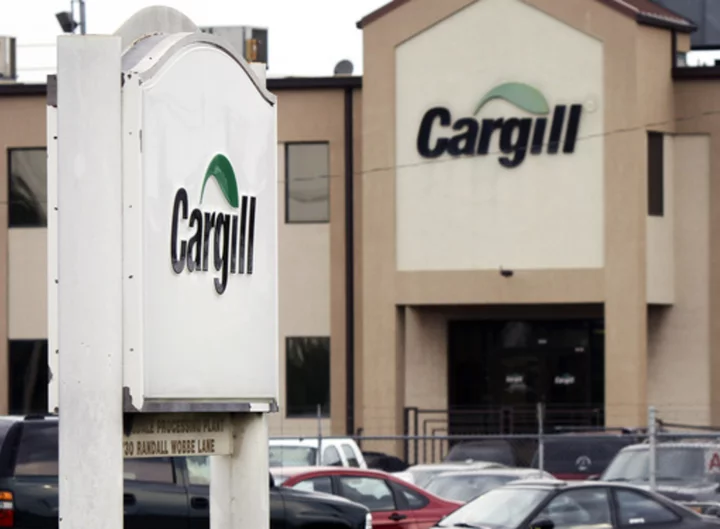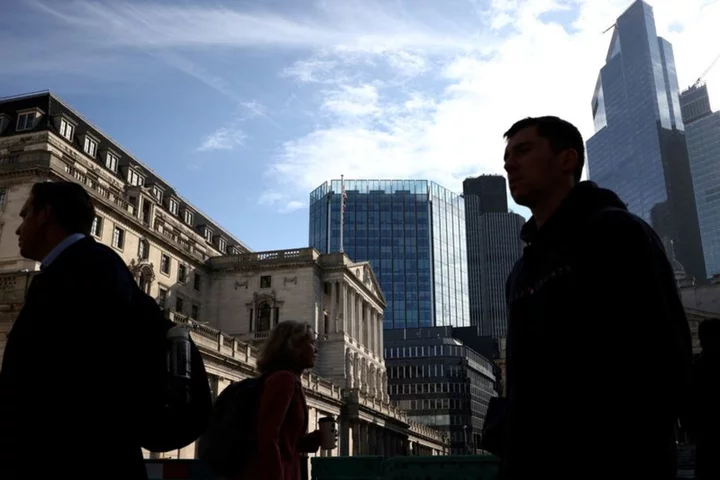Existing and aspiring UK homeowners are bracing for a fresh wave of misery as a rise in benchmark borrowing costs threatens to push up monthly mortgage payments.
The yield on the country's two-year government bonds — which is used to set interest rates on mortgages — jumped to 4.87% on Tuesday.
That is the highest level since the 2008 financial crisis and above the peak hit last fall when the UK government bond, or gilt, market was thrown into turmoil by the prospect of unfunded tax cuts and higher borrowing planned by then-Prime Minister Liz Truss.
Gilt yields shot up on Tuesday after official data showed the fastest growth in UK wages on record — when excluding a rebound from the pandemic — in the three months to the end of April.
The figures have pointed to persistent inflationary pressures, increasing the chances of more interest rate hikes by the Bank of England and driving up gilt yields.
Craig Inches, a senior fund manager at Royal London Asset Management, told CNN there had been a "big, big change in the expectation of interest rate moves."
Inches, who oversees £40 billion ($51 billion) in fixed-income assets such as bonds, said that this time "economic fundamentals," rather than political missteps, were boosting gilt yields.
That's bad news for millions of mortgage borrowers in the United Kingdom, he said, given the "very strong correlation" between gilt yields and interest rates on fixed-term mortgages.
Mortgage pain
The interest rate on the typical UK mortgage may have dropped since the drama of last fall, but it has been steadily rising since the start of May as inflation has proved stickier than the central bank expected.
The average rate on a two-year fixed-rate mortgage stood at 5.9% on Wednesday, according to data from product comparison website Moneyfacts. That's lower than the 6.7% it hit last October, but still far above the 3.4% it stood at a year ago.
According to an analysis by Samuel Tombs, chief UK economist at Pantheon Macroeconomics, the average household on a two-year fixed-rate mortgage that covers 75% of the property's value can expect to pay up to £500 ($634) more a month if it were to refinance today.
With 800,000 fixed-rate mortgages due to expire in the latter half of this year, according to UK Finance, an association of banks and financial service providers, borrowers are bracing for another nasty shock to their monthly outgoings when they refinance.
Major lender HSBC told CNN that it had temporarily withdrawn some of its mortgage products last week, and that it would hike rates on some of its mortgages from Thursday.
A spokesperson for HSBC UK said the bank aimed to provide its customers with "good deals," but that its funding costs had increased over the past few days.
"We've had to reflect that in our mortgage rates," the spokesperson said.
Likewise, Paul Dales, chief UK economist at Capital Economics, told CNN: "Banks' cost of borrowing has gone up, so they have to pass on that cost to borrowers through [more expensive] mortgages."
A 'chronic problem'
Gilt yields, which move in the opposite direction to gilt prices, soared in late September as investors rushed to sell their holdings following the disastrous "mini" budget conceived by Truss and her government.
Her plan to go on a £45 billion ($57 billion) borrowing binge stoked fears that the UK's public finances were on an unsustainable path.
But, this time, investors are less concerned about the country's creditworthiness than about its struggles to get inflation under control.
Consumer prices rose 8.7% in April compared with a year ago, outpacing inflation in Europe and the United States.
When inflation is high, the value of fixed-income assets like bonds decreases and investors tend to sell their holdings or hold off on purchases until new, higher-yielding bonds appear on the market, providing a bigger return.
"The 'mini' budget had a very clean cause — it was a panic, really, among bond investors — and it was very easy to cure that panic by changing the government," said Ed Al-Hussainy, a senior analyst at Columbia Threadneedle Investments.
"[UK inflation] is a chronic problem, and it's not something that you can deal with quickly."









